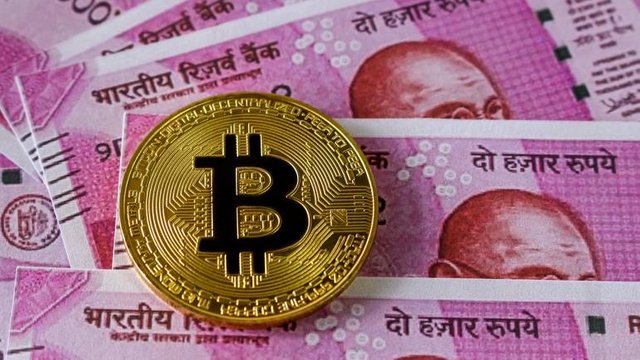Govts and financial institutions globally are looking at ways to minimise misuse of virtual and cryptocurrencies by criminals

With the Reserve Bank of India forbidding all its regulated entities from dealing in virtual currencies, those who invested in bitcoins and other cryptocurrencies are dealing with uncertainty and are left with few options after the regulator’s announcement.
“I invested about Rs 2.5 lakh in cryptocurrencies about six months ago because the valuations were good. Now with the RBI saying Indian banks won’t support transactions, I am not even sure what to do if I want to sell these,” said a Gurugram-based investor on condition of anonymity.
On Thursday, the banking regulator said in a statement that “with immediate effect, entities regulated by RBI shall not deal with or provide services to any individual or business entities dealing with or settling VCs. Regulated entities which already provide such services shall exit the relationship within a specified time”.
While it recognised that technological innovations such as virtual currencies have the potential to improve the efficiency and inclusiveness of the financial system, it expressed concerns of consumer protection, market integrity and money laundering using virtual currencies such as bitcoins.
Governments and financial institutions globally are looking at ways to minimise misuse of virtual and crypto currencies by criminals. However, instead of stringent regulation, the move to bar involvement of banks in these transactions may not be in the best interests of customers who invested in these currencies.
“Some people may have invested in bitcoins or other virtual-currencies from a long-term investment perspective. The RBI’s move creates a conundrum for them – they might have to cash out even when they might not have wanted to,” said Nehaa Chaudhari, Public Policy Lead at TRA, a technology law and policy firm. “Crypto-trading has never been declared to be illegal in India. In fact, even in this press release the RBI has not declared it to be illegal,” she added.
New York cryptocurrency analyst Chris Burniske had in June 2017 estimated that Indians account for 10.98% of the monthly global Bitcoin trade volume, according to this piece in Mint.
Another person who invested in bitcoins and made an exit about six months ago said the new rules would make the future of people’s investments in crypto currencies uncertain. “It is very scary. I know people who have invested money to the tune of Rs 7-15 lakh in bitcoins and other crypto currencies, and current scenario is certainly scary because Indian banks won’t support a sale,” he said, asking not to be identified.
Several people on Friday got emails from their banks clarifying their stance. “Future transactions pertaining to the above stated reasons will be blocked without any liability or responsibility on the part of the bank,” said Yes Bank in an email to customers.
The biggest issue the investors have is that they bought crypto and bitcoins through legitimate channels that follow proper KYC norms, and now they are left stranded.
According to Chaudhari, they have two options-either cash out or continue trading, but both options have their caveats.
If they want to cash out, there is a possibility that the crypto markets would get flooded as many people might look to cash-out, and there may not be enough buyers, which will drive prices downward.
“They may continue trading, but this can only be crypto to crypto and not fiat to crypto. The logistics of this will also have to be re-visited since if you’re transacting through an Indian exchange, you need to have an Indian bank account. Else, the businesses will shift offshore, and only those Indians that have foreign bank accounts in the relevant country will be able to engage in fiat to crypto and crypto to fiat trading. This will all of course depend on the laws of the foreign country including restrictions on foreign traders/account holders etc,” she said.
Congratulations @arpit12! You received a personal award!
Click here to view your Board of Honor
Do not miss the last post from @steemitboard:
Downvoting a post can decrease pending rewards and make it less visible. Common reasons:
Submit
Congratulations @arpit12! You received a personal award!
You can view your badges on your Steem Board and compare to others on the Steem Ranking
Vote for @Steemitboard as a witness to get one more award and increased upvotes!
Downvoting a post can decrease pending rewards and make it less visible. Common reasons:
Submit